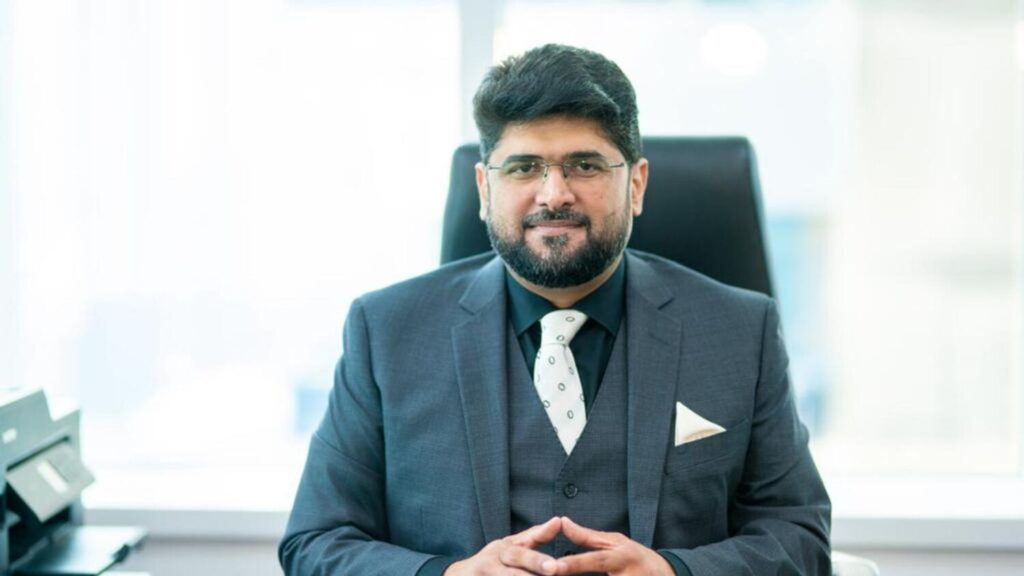
In the UAE, mental health insurance premiums have consistently risen by 10 to 15 percent annually, and this upward trajectory is anticipated to persist in 2024. Insurance industry leaders attribute this growth to an increasing demand for mental health coverage among UAE residents, particularly in the post-pandemic era where awareness has heightened.
Anas Mistareehi, the founder and CEO of eSanad, noted that post-pandemic, mental health insurance has experienced an annual increase of 10 to 15 percent, driven by medical inflation. Mistareehi predicts that this trend will persist in 2024, resulting in higher health insurance costs for policyholders. Many insurance companies have already raised premiums, with the remainder expected to follow suit as a corrective measure due to heightened utilization.

Anas Mistareehi
Moin Ur Rehman, the executive director of Unitrust Insurance, highlighted the general increase in health insurance premiums, including those for mental health, in 2023. He attributed this rise to the escalating costs of medical treatments, which ultimately impact insurance premiums for the average person. Rehman emphasized that mental health treatments often involve medium to long-term commitments, leading to significant medical expenses. The outlook for 2024 suggests a continuation of this trend, with no foreseeable decline in medical insurance premiums.

Citing the World Health Organization, Rehman mentioned that mental health treatment in the UAE has surged sixfold since 2020. He explained that the heightened demand for mental health insurance is driven by increased awareness of mental health issues, such as anxiety, depression, and stress-related disorders. Additionally, societal shifts and an influx of residents from countries where mental health awareness is more normalized contribute to the growing demand for mental health coverage.
Mistareehi noted that the surge in demand for mental health insurance in the UAE can be attributed to the increased need for mental health treatments, particularly exacerbated by the adverse mental health effects of the Covid-19 pandemic, including financial and relationship concerns. As per eSanad, mental health coverage starts with a base plan priced at Dh950, while more extensive plans with broader coverage range from Dh3,000. The Dubai Health Authority (DHA) establishes specific limits and standards for mental health coverage, and insurers typically adhere to these guidelines. When asked if all insurance plans include mental health coverage, Mistareehi informed Khaleej Times that not every health insurance plan covers mental health.
However, he highlighted that medical insurance in the UAE generally encompasses various psychological disorders, including depression. Some insurance providers even offer specialized mental health insurance plans, treating mental illnesses on par with physical conditions. The coverage scope includes hospitalization, therapy sessions, diagnostic tests, pharmaceuticals, and other related services.
Additionally, some medical insurance plans in the UAE may cover consultations, rehabilitation, counseling, and more. Reiterating Mistareehi’s statements, Rehman emphasized that the majority of insurance policies do not automatically cover mental health and need to be specifically requested. He added that not all insurance companies in the UAE currently provide mental health coverage, but there is a growing trend toward the inclusion of mental health services in more comprehensive insurance plans. Striving for extensive and comprehensive coverage, the CEO of eSanad highlighted that both individuals and companies actively seek insurance plans that encompass a broad spectrum of mental health conditions.
This includes addressing common issues such as anxiety and depression, as well as more intricate disorders. He emphasized that individuals are increasingly inclined towards insurance plans that go beyond merely covering therapy or counseling. The preference is for plans that provide a comprehensive array of mental health services, spanning preventive care, alternative therapies, and digital mental health solutions. Rehman observed a prevalent trend among individuals and companies in favor of plans with higher coverage limits. He noted that there is a prioritization of coverage for psychotherapy or therapy sessions, consultations, hospitalization, and pharmaceutical treatments.
Additionally, there is a growing demand for coverage that encompasses holistic and alternative treatment options. This inclination is more apparent among individuals, while larger or multinational companies are typically the ones considering such coverage for their employees. Rehman disclosed that people are increasingly seeking maximum coverage for mental health services, recognizing the potential costliness and long-term nature of mental treatments that often require extensive support. While more individuals are exploring these options, concerns about high premium costs remain widespread, leading the majority to still opt for coverage without mental health services.
Reference: https://www.arabtimesonline.com/news/the-surge-in-uae-mental-health-insurance-premiums/
Last modified: January 10, 2024


